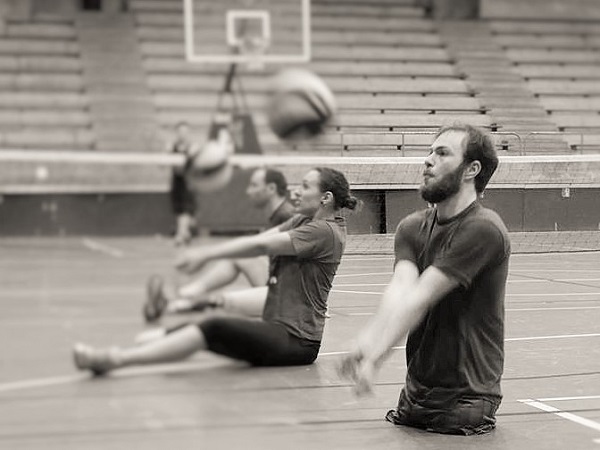Today marks the first anniversary of my suicide attempt. My emotions regarding this milestone differ by the hour, but mostly it feels like any of the other things one suddenly remembers, such as, “Oh yeah, I’ve been living in this house for five years now,” or “Huh, can’t believe it’s been nine years since I graduated.” It changed my life, but it doesn’t define me.
What a relief to realize that.
Looking back, I can only relate to that day in terms of all that has happened since. Now, I can’t imagine my life without the people I’ve met and the experiences I’ve had over the past year. Here are five of them:
1. Feeling proud of my body for the first time in my life. And not because of how it looks but because for the first time, I have taken charge of my body and know what it’s capable of. I used to take my body for granted and treated it as a functional tool for getting around and expressing myself. The rest of my body has had to compensate for the loss of my legs. I have pushed it and challenged it. My body has risen above my expectations in ways I would not have thought possible. Body, you rock.
 2. Playing volleyball with some of the coolest people I’ve ever met. I’ve never been a sporty person or an adrenaline junkie. My hand-eye coordination sucks. But learning to play paravolley (sitting volleyball) has been a liberating experience for me. I have learned that you can do anything if you practice long enough (despite my hand-eye setbacks, my volleyball skills are improving). I’ve also gotten to know several other people with disabilities (including a Paralympian!), who just happen to be awesome. We’re all learning from each other and encouraging each other. Most of all we get each other when it comes to the challenges posed by our disabilities.
2. Playing volleyball with some of the coolest people I’ve ever met. I’ve never been a sporty person or an adrenaline junkie. My hand-eye coordination sucks. But learning to play paravolley (sitting volleyball) has been a liberating experience for me. I have learned that you can do anything if you practice long enough (despite my hand-eye setbacks, my volleyball skills are improving). I’ve also gotten to know several other people with disabilities (including a Paralympian!), who just happen to be awesome. We’re all learning from each other and encouraging each other. Most of all we get each other when it comes to the challenges posed by our disabilities.
3. Acknowledging and understanding my depression (and myself). It wasn’t until after my suicide attempt that I spoke to anyone about my feelings of hopelessness, worthlessness and failure. When I finally understood that there was a medical cause for them and that treatment was possible, a huge weight was lifted off my shoulders. I wasn’t alone, I wasn’t crazy, I could be easier on myself and life could get better.
No matter what scary thing you’re going through, sharing the load with someone will always make it easier. Yes, sometimes they won’t be able to fix or solve it, but they can hold your hand and go through it with you. There will always be someone willing to help. If you don’t want to make a loved one responsible for coping with your struggle, talk to a professional or call a helpline. The people on the other end of the line really do want to help, and they’re usually experienced. Wouldn’t you rather learn to drive from a seasoned driver than from your brother who takes the bus?
4. Finding a new passion and purpose. For a long time it felt as though I had pursued my dreams and failed at all of them. It took a disability to help me realize what I had in me and how I could use my experiences to make a difference. Always have faith in yourself, because there’s no one else exactly like you, and somewhere out there is a need and a gap the perfect size for you.
5. Making new friends and reconnecting with old ones. Over the past year, my depression, disability and rehabilitation have introduced me to a number of kind, intelligent, talented people who I would never have known otherwise. The road to recovery has also been smoothed by the constant, unfailing love and support of old friends and family. Near-death, life-altering experiences seem to erase the social barriers between people. We say the things we almost didn’t get a chance to say and reassess the content of our lives. The wonderful people in my life have taught me how great and diverse the world is and shown me how bright the future can be if we nurture the good in it.
This post originally appeared on darylhb.com.
If you or someone you know needs help, please visit the National Suicide Prevention Lifeline. Head here for a list of crisis centers around the world.
Want to end the stigma around mental illness? Like us on Facebook.
And sign up for what we hope will be your favorite thing to read at night.
